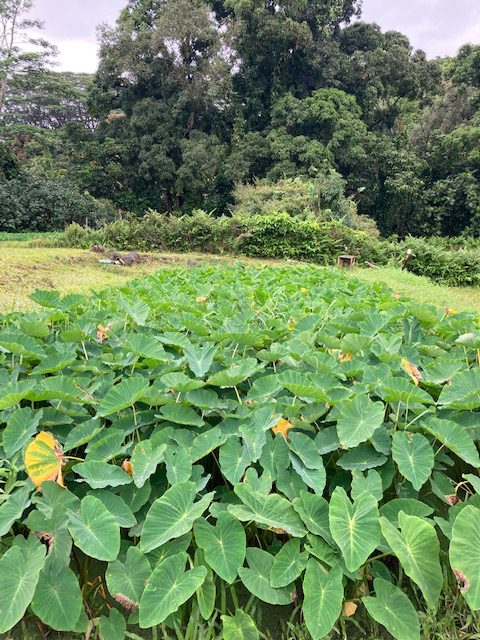The W.K. Kellogg Foundation made a two-year, $1 million donation to the University of Hawai‘i–West O‘ahu Sustainable Community Food Systems program to create a new Hawai‘i Institute for Sustainable Community Food Systems. This gift will support undergraduate and public education, collaborative research, communications and planning activities that aim to enhance the long-term sustainability and resilience of Hawaiʻi’s food system.
“The Hawaiʻi Institute for Sustainable Community Food Systems is intended to be a decentralized food system transformation hub that is grounded in complementary STEM disciplines and informed by community needs and indigenous knowledge and practice,” said Dr. Albie Miles, Assistant Professor of Sustainable Community Food Systems at UH West Oʻahu. “By coordinating strategic partnerships, new educational programs, applied research, planning and policy analysis, we aim to make lasting change in the health, equity, resilience and sustainability of our food system.”
The HISCFS aims to bring together UH faculty, community leaders, indigenous scholars and practitioners, planners, state officials, members of the business community, and producers into closer collaboration to better understand and address Hawaiʻi’s key food system challenges and help achieve the state’s commitment to local and UN Sustainable Development Goals by 2030.
The W.K. Kellogg Foundation (WKKF) donation will also provide scholarship and professional development opportunities for Native Hawaiian and underrepresented students in higher education by providing eight $5,000 scholarships each semester to outstanding students enrolled in the UH West Oʻahu Sustainable Community Food Systems (SCFS) degree program. Students interested should contact Dr. Miles at albie@hawaii.edu.
Chancellor Maenette Benham stated, “The Kellogg Foundation’s investment in the important work of our SCFS program affirms the importance of a resilient food system as cornerstones of healthy communities and families, and an essential key to addressing the impact of climate change in the Pacific and across the globe.”
Miles further summarized the need for this work stating, “The global food system is now understood as the primary cause of global environmental change and negative public health outcomes, but is also one of the strongest levers to optimize human health and environmental sustainability on Earth. Recent climate events and the COVID-19 pandemic has exposed a range of food system vulnerabilities and magnified the need for policymakers, educators, researchers, planners, citizens, and practitioners to increasingly work together on a common vision to advance the health, equity, resilience, and sustainability of the food system of Hawaiʻi and beyond.”
